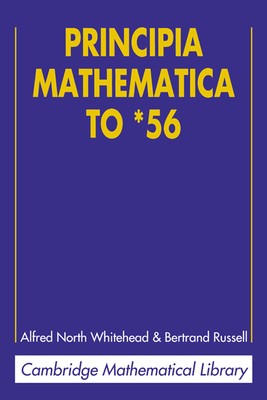
- Išsiųsime per 10–14 d.d.
- Autorius: Alfred North Whitehead
- Leidėjas: Cambridge University Press
- ISBN-10: 0521626064
- ISBN-13: 9780521626064
- Formatas: 15 x 23.2 x 2.9 cm, minkšti viršeliai
- Kalba: Anglų
- Extra -15 % nuolaida šiai knygai su kodu: ENG15
Atsiliepimai
Aprašymas
The great three-volume Principia Mathematica (CUP 1927) is deservedly the most famous work ever written on the foundations of mathematics. Its aim is to deduce all the fundamental propositions of logic and mathematics from a small number of logical premises and primitive ideas, establishing that mathematics is a development of logic. This abridged text of Volume I contains the material that is most relevant to an introductory study of logic and the philosophy of mathematics (more advanced students will of course wish to refer to the complete edition). It contains the whole of the preliminary sections (which present the authors' justification of the philosophical standpoint adopted at the outset of their work); the whole of Part I (in which the logical properties of propositions, propositional functions, classes and relations are established); section A of Part II (dealing with unit classes and couples); and Appendices A and C (which give further developments of the argument on the theory of deduction and truth functions).EXTRA 15 % nuolaida
Kupono kodas: ENG15
Akcija baigiasi už 6d.02:56:32
Nuolaidos kodas galioja perkant nuo 10 €. Nuolaidos nesumuojamos.

- Autorius: Alfred North Whitehead
- Leidėjas: Cambridge University Press
- ISBN-10: 0521626064
- ISBN-13: 9780521626064
- Formatas: 15 x 23.2 x 2.9 cm, minkšti viršeliai
- Kalba: Anglų




Atsiliepimai